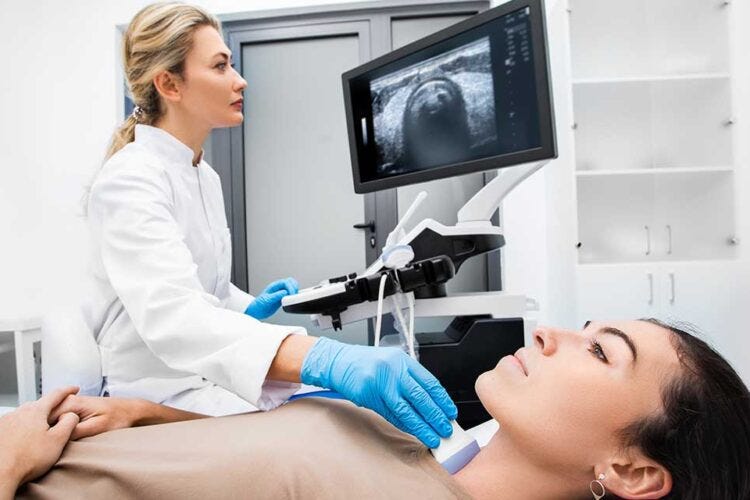Diagnosing hypothyroidism seems like a straightforward walk in the park. You go to the doctor, get a lab test taken, and come out with a diagnosis. This may be a “yes you have hypothyroidism” or an “all clear”, but you come out with an answer.

For years this thinking was true, but now many doctors are realizing that poor thyroid function is much more complex than this. While the standard lab test is, still helpful there are many more factors that may contribute to an underactive thyroid that should be explored.
Here are some common questions about the diagnosis that should help you in your journey to discovering more about this mysterious condition.
Q. Is a blood test accurate for diagnosing the condition?
A. For many patients, a simple blood test is all that is necessary to diagnose thyroid disease. Doctors will often perform a standard blood test to assess the levels of certain hormones in the blood including T3, T4, and TSH.
If any of these is higher or lower than the acceptable range, this may suggest an imbalance or a case of hypothyroidism.
Q. My lab tests came back normal but I have all the signs and symptoms of an under-functioning thyroid. Could I still have the disease?
A. Yes. There are many cases where someone has thyroid hormones that are borderline normal, meaning they narrowly fit within the “normal” range groups assigned standard lab tests, but are on the border of what is considered ‘acceptable.’ This means you may have a mild case of the disease or one that is developing.
If you feel that you still have the signs and symptoms of a sluggish thyroid your doctor may perform other tests including thyroid antibody tests to determine whether other factors may be affecting your thyroid gland.
Antibodies can indicate an autoimmune condition, in this case where the body would attack the thyroid gland. He or she may also want to rule out other conditions that are unrelated to thyroid function but could be causing similar symptoms.
If you have an underlying disease, it is important to diagnose and treat this properly so hypothyroidism can be accurately assessed.
Q. My sister has hypothyroidism. Can I get a diagnosis because of this?
A. Thyroid disease may run in the family, but this is not always the case. Other types of thyroid disorders are more commonly associated with genetics, including Hashimoto’s thyroiditis.
Just because your sister has hypothyroidism doesn’t mean you have it or will get it. Still, it doesn’t hurt to have your thyroid gland checked at a physical, or let your physician or other healthcare provider know of your family history.
Q. I was diagnosed with hypothyroidism a year ago and have been taking medicine. Am I cured now?
A. Often patients that begin taking prescription medicine for thyroid disease need to continue treatment for the long-term, or in some cases for life. This is not always the case, but in many cases treatment or caring for one’s thyroid gland becomes a part of life.
Treating an underlying cause or condition may result in the complete elimination of symptoms, although routine monitoring will help ensure hypothyroidism does not re-occur and jeopardize health. It is important you consult with a qualified health professional about decisions regarding your long-term health.
If you do not like the idea of taking pharmaceutical medication, which only controls symptoms, you will be relieved to know that nature has provided us with a wide variety of remedies that will both relieve your symptoms, and improve thyroid function, thereby offering a more permanent solution.
Remember caring for your thyroid gland can become a positive lifestyle habit if you look at it the right way. Don’t let hypothyroidism get you down, get a handle on it and let the sunshine in!
CAUTION: Now I need you to pay very close attention to this
Hypothyroidism is NOT the life sentence you think it is!
Most doctors think there is no cure for hypothyroidism. They’ll say you have to take drugs to control it for the rest of your life.
But this is not true anymore. Because it turns out there’s a root cause for hypothyroidism. And now there’s a cure for that root cause — a cure that’s been enjoyed by thousands of people around the world.
No more fatigue, no more depression, no more aching limbs, skin blemishes… and no more meds or visits to the doctor.
Read about this hypothyroidism solution here — you’ll be so glad you did…


